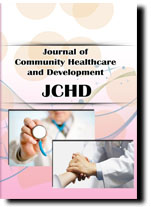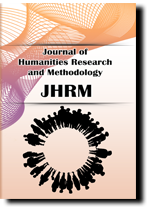[1] Kim, S. R., “Differences in mental health of the elderly according to religious experiences an activities, Master’s Thesis, University of Han Seo, Korea, (2013), pp. 69. (Unpublished).
[2] Kwon, S. J., “The effects of social activity on the successful aging of the aenior”, Master’s Thesis, DaeJeon University, Korea, (2013), pp. 85. (Unpublished).
[3] Lee, M. H., “(A) study on the relationships between social activities and life satisfaction of the aged people in Busan metropolitan city”, Master’s Thesis, Dong-A University, Korea, (20030, pp. 85. (Unpublished).
[4] Havighurst, R. J., “Developmental Task and Education”, (3rded.). NY: David Mckay, (1972).
[5] Nam, K. M. and Nam, H. H., “The influence of older people's satisfaction factors of housing environment on their quality of life: focusing on the mediating effect of self-esteem and depression”, Korean Journal of Social Welfare Studies, vol. 4, no. 3, (2013), pp. 395-420.
[6] Snyder, C. R., “Hope theory: Rainbows in the mind”, Psychological inquiry, vol. 13, no. 4, (2002), pp. 249-275.
[7] Snyder, C. R., Shorey, H. S., Cheavens, J., Pulvers, K. M., Adams III, V. H. and Wiklund, C., “Hope and academic success in college”, Journal of educational psychology, vol. 94, no. 4, (2002), pp. 820.
[8] Snyder, C. R., LaPointe, A. B., Jeffrey, Crowson J., and Early, S., “Preferences of high-and low-hope people for self-referential input”, Cognition & Emotion, vol. 12, no. 6, (1998), pp. 807-823.
[9] Yano, K., Reed, D. M., and McGee, D. L., “Ten-year incidence of coronary heart disease in the Honolulu Heart Program: relationship to biologic and lifestyle characteristics,” American journal of epidemiology, vol. 119, no. 5, (1984), pp. 653-666.
[10] Choi, G. I., “A study on the social participation of the elderly; focused on Wonj”, Master’s Thesis, Sangji University, Korea, (2008), pp. 74. (Unpublished).
[11] Kang, L.Y., “Development and application of counselling process hope scales”, PhD’s Thesis, Sungkyunkwan University, Korea, (2002), pp. 156. (Unpublished).
[12] Kim, Y. B. and Lee, S. H., “Effects of the elderly’s health statuses, health behavior, and social relations on their health-related quality of life: focusing on family types”, J Korean Acad Community Health Nurs., vol. 29, no. 3, (2018), pp. 310-321.
[13] Yoon, S. D. and Han, G. H., “Productive activities and psychological well-being of the rural elderly in Korea”, Journal of the Korea Gerontological Society, vol. 24, no. 2, (2004), pp. 57-77.
[14] Kim, J. Y., Lee, S. G. and Lee, S.K., “The relationship between health behaviors, health status, activities of daily living and health related quality of life in the elderly”, Journal of the Korean Gerontological Society, vol. 30, no. 2, (2010), pp. 471-484.
[15] Lee, Y. G., “A study on life satisfaction of the elderly; Focused on participation in religious and social activities”, Master’s Thesis, Cheongju University, Korea, (1994), (Unpublished).
[16] Kim, H. Y., “Analysis of Differences in Life Satisfaction according to the Types of Leisure Activities of the Elderly-Daegu Metropolitan City”, Suseong-gu, Master’s Thesis, Yeungnam University, Korea, (2006), pp. 82. (Unpublished).




